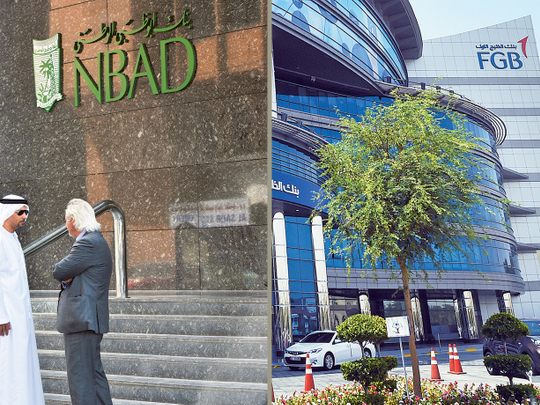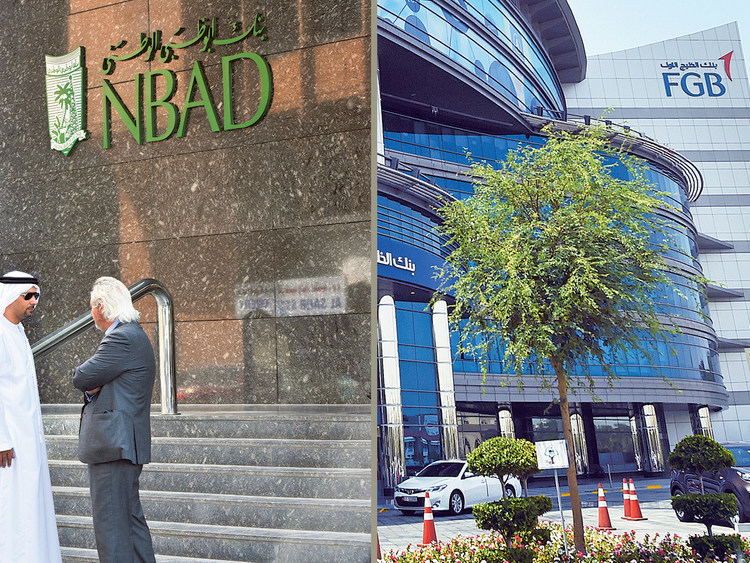
Dubai: A mega-merger of the two biggest banks in the UAE should leave the combined company with a larger representation on the benchmark emerging-market index, triggering hundreds of millions of dollars of inflows to the stock, according to calculations by EFG-Hermes strategists.
Thursday marks the last day of trading in FGB PJSC before its combination with National Bank of Abu Dhabi PJSC in a deal that creates the biggest financial institution in the country. The combined entity starts trading on April 2, with FGB stock holders receiving 1.254 shares for each one they own before the merger.
While FGB’s last trading day is likely to see foreign investors selling out of the stock, this should more than reverse over time for the combined company as it reaches liquidity benchmarks in 2018, said Mohammad Al Hajj, a Dubai-based equity strategist at EFG Hermes. The enlarged bank, trading as National Bank of Abu Dhabi, could gain an MSCI Emerging Markets Index weighting of 0.18 per cent, once a liquidity factor adjustment is removed, compared with the banks’ combined 0.1 per cent right after the merger, he said.
Liquidity requirements
“Looking ahead and assuming that FGB’s liquidity moves to the new entity, we expect the merged entity to pass liquidity requirements next year,” Al Hajj said. EFG-Hermes estimates $113 million (Dh414.7 million) of inflows from tracker funds as NBAD’s shares are added to the FTSE indexes weighting to fully reflect the weight of the new entity. An MSCI review of the stock’s allocation in its emerging-markets index next year could trigger $240 million of passive inflows from tracker funds, he said.
The merged bank’s valuations don’t look attractive to Chiradeep Ghosh, manager for equities research at Securities & Investment Co in Manama, Bahrain. He expects operating expenses to rise and for the bank to apply a conservative approach to its balance sheet, leading to a pick up in impaired loans to 3.2 per cent in 2017 from 2.6 per cent at the end of 2016. Dividend policy is expected to reflect that of the stand-alone NBAD, which capped payouts at 40 per cent of earnings.












